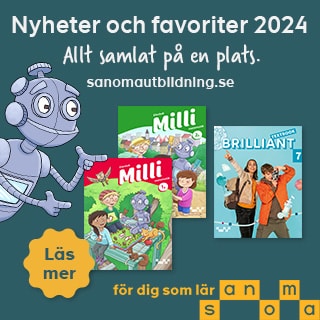Cutting Through Water: Towards a Posthuman Theory of Educational Relationality
Simon Ceders avhandlingsarbete handlar om att utveckla nya teorier om pedagogiska relationer och är placerat inom området pedagogisk filosofi. Detta gör han genom att studera teorier om pedagogiska relationer och korsar dessa med posthumanistisk filosofi. Hans två huvudsakliga begrepp är post-antropocentrism och intra-relationalitet.
Simon Ceder
Professor Bosse Bergstedt, Lunds universitet Barbara Schulte, Lunds universitet
Professor Sharon Todd
Lunds universitet
2016-02-05
Cutting Through Water: Towards a Posthuman Theory of Educational Relationality
Cutting Through Water: Towards a Posthuman Theory of Educational Relationality
Based on an ongoing debate—academic as well as public—regarding the roles of the teacher and the student in education, this thesis explores educational relations within the field of philosophy of education. After critically examining intersubjective approaches to theories of educational relations, I localize anthropocentrism and subject-centrism (teacher/student) as two problematic aspects of the aforementioned approaches. These aspects are deeply connected with various humanistic ideas. Instead, I turn to posthuman philosophy and more specifically, I propose post-anthropocentrism and intra-relationality as a theoretical framework. Diffraction is hereby suggested as an appropriate posthuman methodology that reads texts and memory stories relationally in order to develop new ideas. The theory and methodology used are mainly inspired by posthuman feminist philosophers Karen Barad and Donna Haraway.
The main contribution of the thesis is introducing and developing a posthuman theory of educational relations, which is called educational relationality. The main analysis is executed through a diffractive reading of intersubjective theories on educational relations and posthuman philosophy, resulting in five co-concepts. The first co-concept developed is impermanence, which means that educational relationality and the world are constantly in movement. Uniqueness-as-relationality proposes that uniqueness appears relationally, rather than connected to a single human subject. Proximity describes the closeness of relationality, which is ethical, material, and sensible. Edu-activity is where education is located according to educational relationality. Finally, intelligibility is suggested as a posthuman approach to learning. The co-concepts conceptualize the theory of educational relationality. I ground these concepts with two educational examples, literacy dogs and augmented reality technology, which are read through the co-concepts and additional posthuman philosophy. The analysis provided through these examples demonstrates the potential of using the proposed theory and its co-concepts in everyday practices, even when nonhumans are a part of the educational relation.
Relaterade länkar

Undervisa i Artificiell intelligens
 Gy–Vux
Gy–Vux 







